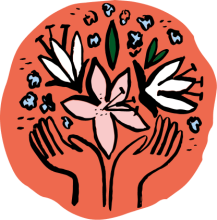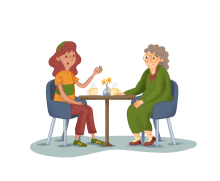
Family and friends
Family and friends are a vital support at a time of suicide concern. This page will help guide you through the process, what to do and say, how to remember a loved one and support those in need.

Pointing you in the right direction
You may find the following information helpful for you or someone else.
Talking about suicide

This is an extremely distressing time for families and it is important that everyone looks after their own wellbeing and the wellbeing of those around them. Talking about suicide is not taboo. If you have been affected by suicide or are having negative thoughts, there are people to talk to.
Find out about bereavement and support services available.
Where to get immediate help

If you need to call for help or support immediately, the following services are available 24/7 free of charge.
If you or someone else is in immediate danger of suicide or require urgent medical attention call 999.
Lifeline is Northern Ireland's crisis helpline for anyone experiencing distress or despair. All calls are answered by trained counsellors. Call Lifeline 0808 808 8000
Childline is available to help anyone under 19 in the UK with any issues they are going through. Call Childline 0800 1111
Samaritans provide a listening service for whatever you are going through. Call Samaritans 116 123
The role of a family advocate

It is normal for people to experience emotional pain following the death of a loved one which is suspected to be suicide. It is important to support those connected with the person who has died. Having the right person or people to reflect the families wishes is important. A family advocate can act as a point of contact to help manage and coordinate communication.




